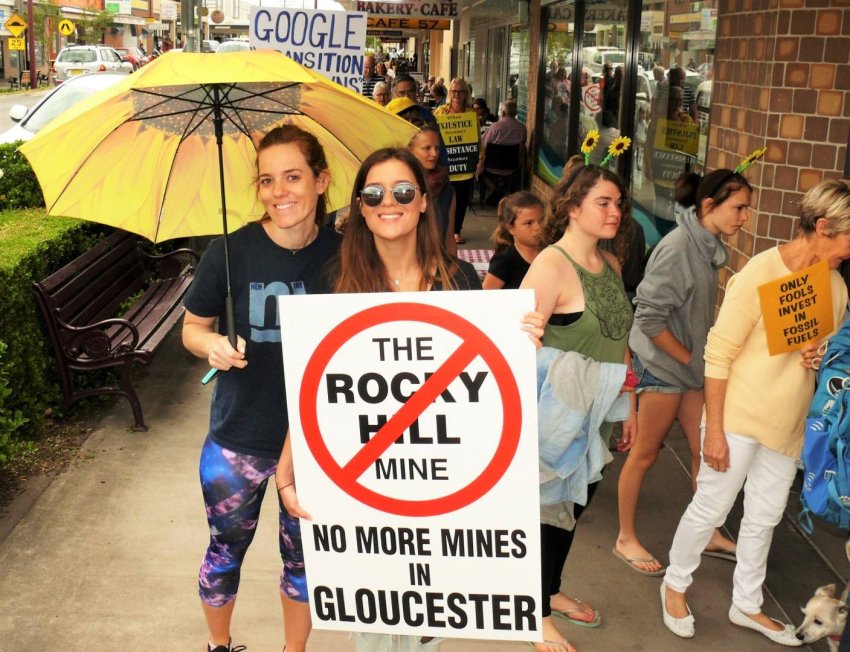
The NSW Minerals Council is pushing the state Coalition government to clamp down on planning authorities taking into account downstream emissions from mining proposals.
The Environmental Planning and Assessment Amendment (Territorial Limits) Bill 2019 is currently being considered by a Legislative Council parliamentary inquiry.
It seeks to limit planning authorities’ consideration of a resource project’s impact on the climate, as well as the ability to contemplate any international agreements federal and state governments have signed up to (such as the Paris Agreement).
The push comes after the NSW Independent Planning Commission (IPC) and Land and Environment Court decided last year to partially or completely block three coal projects from going ahead: the Rocky Hill coal mine, near Gloucester; the United Wambo coal project, near Singleton; and a thermal coal mine in the Bylong Valley.
In two cases, authorities cited unacceptable impacts on groundwater, heritage and agriculture as key reasons for the rejection. They also referred to greenhouse gas emissions as an associated risk. One of the conditions placed on the Wambo project was that extracted coal only be exported to countries that have signed onto the Paris Accords or have policies to reduce greenhouse gas emissions.
Some witnesses who spoke said the bill could have been drafted by the NSW Minerals Council, and it seeks to limit authorities taking into consideration “Scope 3” emissions which occur when coal or gas is burnt by the buyer.
With communities still picking up the pieces from the recent bushfire emergency, Groundswell Gloucester president and expert witness Julie Lyford denounced the bill’s supporters as “climate criminals” at a February 6 inquiry hearing.
“Some 130 houses were destroyed in the fires; the mighty Manning River stopped flowing for 90 days and 3000 people are relying on water being trucked in and the government has the nerve to try and put through a bill which aims to stop authorities from taking the cause of all this into account,” she said.
“Why is the government so easily bullied by the fossil fuel lobby? The proponents of this bill are climate criminals. They will be held to account if this bill goes through.”
Groundswell Gloucester’s Diane Montague added: “This bill suggests that Australia should not take any responsibility for greenhouse gases overseas. Regional and rural communities disagree: we are the ones who have to live with the impact of climate change and we are crying out for leadership. Australia and New South Wales have a moral obligation to act.”
The Environmental Defenders Office principal solicitor Elaine Johnson said the bill is a “retrograde step” because “it undermines the ability to protect the environment” by restricting the regulation of Scope 3 emissions. She said the argument that Scope 3 emissions were being “double counted” is a “furphy” and described the bill as a piece of “special legislation” for the mining industry.
“We need to make the laws relevant to the context and the science. This bill fails to provide certainty to New South Wales communities and is the wrong response at the wrong time.
“It is the opposite of the climate response we need now.”
Liberal MLC Catherine Cusak, who supports the bill, questioned whether downstream emissions from fossil fuel projects can even be calculated, while party colleague Shane Mallard repeatedly asserted that the bill “d[oes] not remove consideration of greenhouse gas emissions”.
Johnson, however, said the bill does require decision makers to “limit their consideration” of downstream emissions and is a deliberate attempt to prohibit the imposition of conditions aimed at mitigating the impact of greenhouse gases emitted when coal is burnt overseas.
She said the bill is not a “technicality” and could have “unintended consequences for other planning laws”.
“This is a sinister tweaking of the law and its impacts will affect everyone in New South Wales.”
Dr Patrick Harris and Dr Ingrid Johnston from the Public Health Association of Australia said the bill would hamper the work of the NSW Environmental Protection Authority. They said emissions from coal extracted in NSW are already having “a profound public health impact”, not least of which is its contribution to the disastrous bushfire emergency.
The decisions by the Land and Environment Court and IPC are not “radical”, they said; rather, they are in line with “public interest” and “ecologically sustainable development principles”.
Lock the Gate’s George Woods told the hearing that if it became law, “more than two billion tonnes of greenhouse gas emissions from 11 new coal mining projects and a coal seam gasfield could be ignored by planning authorities over the coming 18 months — the equivalent to the entire amount of greenhouse gas pollution produced by Russia in 2017”.